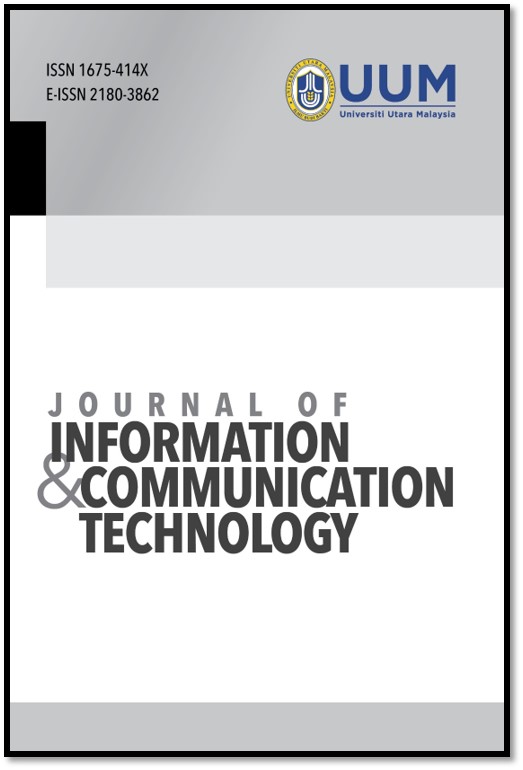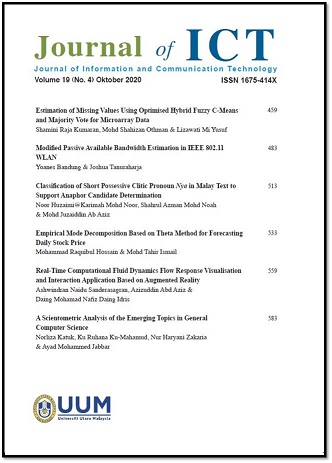2021 - present 2002 - 2020
2002 - 2020
|
|||||||||||||
The Journal of Information and Communication Technology (JICT) invites submissions that showcase new theoretical contributions in:
|
1. |
Computer Science |
|
JICT seeks pioneering research that pushes the boundaries of computer science theory, addressing fundamental concepts, innovative algorithms, and advanced computational methodologies. Topics include artificial intelligence, machine learning, cybersecurity, distributed computing, human-computer interaction, and software engineering, aiming to redefine theoretical frameworks and explore novel applications. |
|
|
2. |
Mathematics |
|
|
The journal welcomes manuscripts that advance mathematical theory within information technology. Contributions span theoretical developments in algebra, calculus, discrete mathematics, numerical analysis, and statistical methods, offering new insights into computational complexity, algorithmic design, and mathematical modelling. |
|
3. |
Decision Science |
|
JICT encourages submissions that integrate cutting-edge decision-making theories with information technology. Research topics encompass decision analysis, game theory, optimization models, risk assessment, and simulation techniques, aiming to innovate theoretical approaches and enhance practical decision-making frameworks across diverse domains. |
In addition to original research articles, JICT publishes comprehensive reviews that critically analyze recent theoretical advancements, highlight emerging trends, and provide scholarly perspectives on the intersection of Information Technology with Computer Science, Mathematics, and Decision Science.
2021 - present 2002 - 2020
2002 - 2020
|
|||||||||||||
| Publisher | UUM PRESS |
| ISSN | 1675-414X |
| eISSN | 2180-3862 |
| Established | 2001 |
| DOI | 10.32890/jict |
| Publishing Frequency | Quarterly (January, April, July and October) |
UUM Press
Universiti Utara Malaysia, 06010 UUM Sintok
Kedah Darul Aman, Malaysia
Phone: +604-928 4816, Fax : +604-928 4792
All articles published in Journal of Information and Communication Technology (JICT) are licensed under a Creative Commons Attribution 4.0 International License.
